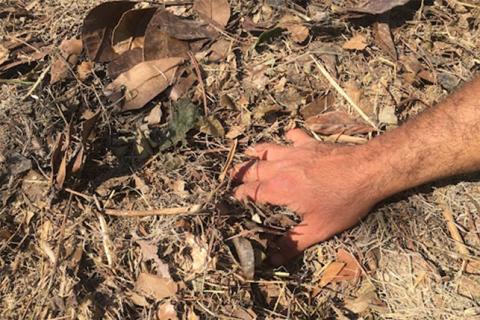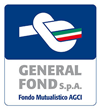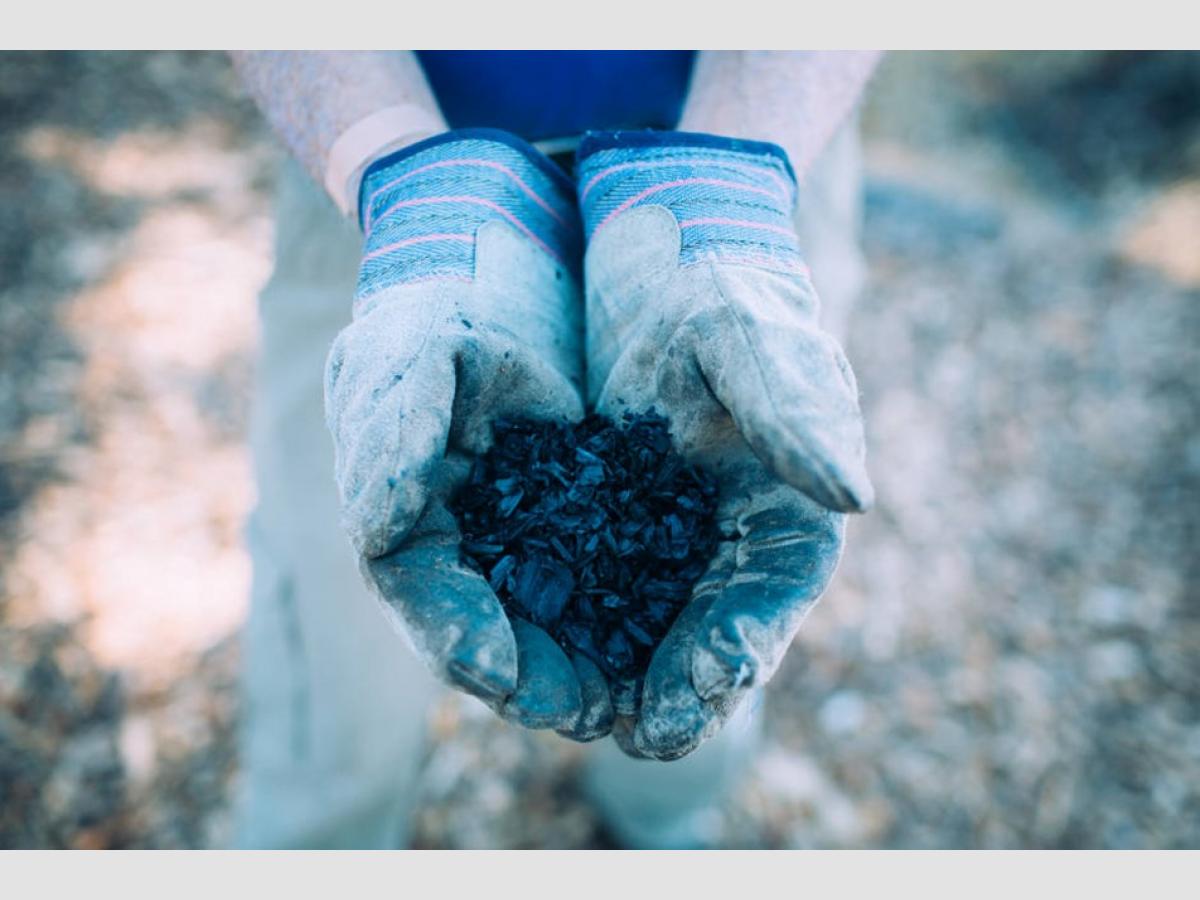GRAINS : LocalCarbon Italia: an innovative community cooperative offering carbon credits to businesses to improve their environmental impact.

STORIES OF AGCI COOPERATIVES. FROM THE UMBRIA REGION A PROJECT BASED ON SUSTAINABILITY AND SOIL REGENERATION WITH “LOCALCARBON ITALIA”
An innovative community cooperative offering carbon credits to businesses to improve their environmental impact.
Interview with the founding members Silvia Sandri, Carolina Maraffino and Ammy Alise Bratten
“LocalCarbon” community cooperative. Where and when was it born?
Born on March 8th in Perugia. A symbolic date linked to the female world, like our cooperative made up of three women, three members: Silvia Sandri, Carolina Maraffino and Ammy Alise Bratten.
What is your professional path and what drove you to undertake the field of sustainable agriculture?
Carolina Maraffino: “I have always worked in the administrative field. I have held important roles in complex companies in the Florentine area. In 2020-2021 I decided to leave everything and set off to realize what was my dream: harvesting potatoes in Ireland.
I volunteered in eco villages, in Bulgaria and Ireland. During these travels I came into contact with Ernesto Sirolli, an economist and political scientist with experience in the field of local economic development, who is Silvia Sandri’s uncle. I immediately perceived a great energy and empathy with him when we discussed topics on environmental sustainability.
The Dr. Sirolli immediately put me in touch with Silvia because he knew we would share the same topics. And so it was!
After several months of experimentation, in March 2022, the land regeneration project was born. We worked first as volunteers and then thanks to the financial support of a financier, who we met through the other partner, Ammy”.
Silvia Sandri: “Ernesto Sirolli has been involved in business facilitation for 30 years and lives in California. It was he who introduced me to Silvia Scozzafava who had founded an innovative startup with a social vocation and decided to deal with carbon credits based on biochar. I am a permaculturist and have been working in the field of sustainability in California for ten years. In 2018 we started the “LocalCarbon” discussion in America and there they financed and authorized us to develop a similar project in our country: “LocalCarbon Italia”.My idea is basically to provide biochar to farms for free. Farmers do noble work for all people on the planet. We are the ones who have to give them some advantage, because they do the work for everyone. The biochar producer does it in part, they do it in part. The problem is making them meet.” Ammy Alise Bratten: “In October 2022, Silvia Sandri began a collaboration with Dr. Vanni Ficola, agronomist expert in EM Technology, who for years has successfully used biochar inoculated with EM Effective Microorganisms for the regeneration of agricultural land. Vanni Ficola, together with Dr. Ilario Niboli, manages the EMITA srl company in Brescia which produces EM for agriculture.Ilario Niboli is an ethical entrepreneur who knows the importance of biochar well and, having learned of their initiative, decided to financially support the start-up of LocalCarbon Italia. Ammy Bratten was introduced to you by Vanni Ficola and Ilario Niboli as president of the Italian Association of Effective Microorganisms, shortly afterwards Silvia and Carolina invited her to become a founding member together with them”.
What is carbon credit? And biochar?Biochar is created by subjecting woody agricultural waste to a thermal process, that is, prunings are taken and placed in a machine, where high heat is produced in the absence of oxygen. Then it chars. Biochar is nothing more than charcoal for agricultural use.The carbon credit is a negotiable certification, i.e. a title equivalent to one ton of CO2 not emitted or absorbed thanks to an environmental protection plan created with the aim of reducing or reabsorbing global emissions of CO2 or other greenhouse gases.We sell carbon credits to companies to finance the donation of biochar to farmers. This model allows us to create a virtuous cycle of financial sustainability that strengthens our commitment. In particular, we offer carbon credits to companies in all sectors that have already undertaken, or intend to undertake, a path to improve their environmental impact. These companies may have optimized their manufacturing processes and want to further distinguish themselves to make a difference. Our action is triple and locally oriented: we work in the field of climate change, contributing not only to the reduction of carbon emissions, but also to carbon capture to actively address the problem of existing emissions. Furthermore, we promote soil regeneration to improve the health of local ecosystems, thus helping to create more fertile and resilient agricultural land. Finally, we work to enhance the productivity of Italian farms, thus helping to support local and sustainable agriculture.Today, companies feel the need to act to protect the environment. But also of their own business. In your opinion, are they ready to embrace these sustainable innovations? Is it convenient for them? And if not, what should be done?Being sustainable is always advantageous. Our business focuses on soil regeneration, a priceless resource. It is of inestimable value. By investing in these credits, companies will have a direct impact on the preservation of this precious Italian heritage. Furthermore, regenerative agricultural practices are promoted that produce high-quality foods and contribute to people’s health and to the Italian culinary tradition. Finally, investment in Italy for the climate goes far beyond carbon capture. It is an ethical and intelligent decision that reflects a responsibility towards the future of the country, promoting sustainable growth and local prosperity.
How do you get in touch with companies? How do they know you?Some find us on the internet via our website https://localcarbonitalia.org/.We also work with “key people” in the sector who introduce us to well-established networks, such as Ammy’s husband who is an agronomist and then we hope also through word of mouth: in fact, we ask companies that potentially want to purchase the credits, to indicate if they know of any other interested agricultural businesses in their area.Spreading knowledge about the importance of carbon credits is fundamental for us.What future plans? Your hopes? If I were to hypothesize the dream. Well, within the next two years we should be able to easily implement all the projects we have conceived. We have enough biochar to fill 30 projects a year. Each project corresponds to 11 cubic meters of biochar going onto a farm, for a total of 300 tons of CO2 sequestered for hundreds of yearsWith industrial agriculture, currently, the soil is doped. The soil structures are now compromised. Within the soil there are 7 types of organisms that must coexist in balance to ensure that the structure of the soil can hold and nourish the plants which nourish the microorganisms and which, in turn, nourish the plants. And all of that was lost. So soil regeneration is essential to get the land capable of producing healthy food back into a healthy condition.
Gabriele Nardini, president of AGCI Umbria, on the LocalCarbon cooperative: “When I met the girls from the LocalCarbon Italia cooperative, I initially struggled a little to fully understand the novelty of their proposal, given that I had heard about Biochar and credits of Carbon only vaguely. Once I understood their project, I was so impressed that I became their first “fan”! I was infected by their enthusiasm, by their genuine love for the environment and ecosystems and by the absolute innovativeness of their mission. The cooperative’s activity fits perfectly within the increasingly stringent and non-deferrable demands of business sustainability, in compliance with the 17 Objectives of the United Nations AGENDA 2030. I hope with all my heart that these girls and their business have a bright future full of well-deserved achievements, from every point of view, and AGCI Umbria will always be at their side on this journey”. Letizia Pani, Head of Professional Training and Business Assistance, on the LocalCarbon cooperative: “The LocalCarbon Italia community cooperative is precisely the example of how activities to support the environment can produce jobs and business. Naturally we are talking about innovative business models, dedicated to the common good and the protection of our planet’s natural resources. Thanks to the services offered by the cooperative, more and more companies will be able to reduce their carbon footprint and improve their sustainability balance, playing, among other things, a role in supporting the fertility of the land and, consequently, supporting eco-sustainable agricultural activities. A very important aspect of the activities carried out by the LocalCarbon Italia cooperative is that of training for farmers receiving Biochar. This is very important because we all know that every form of innovation materializes and consolidates only through training and capacity building actions. As Manager of the Training Sector, I confirm AGCI Umbria’s commitment to supporting the training actions that will be implemented by the cooperative for farmers. Also through the search for financing through Joint Interprofessional Funds such as our Fon.Coop Cooperation Fund”.




